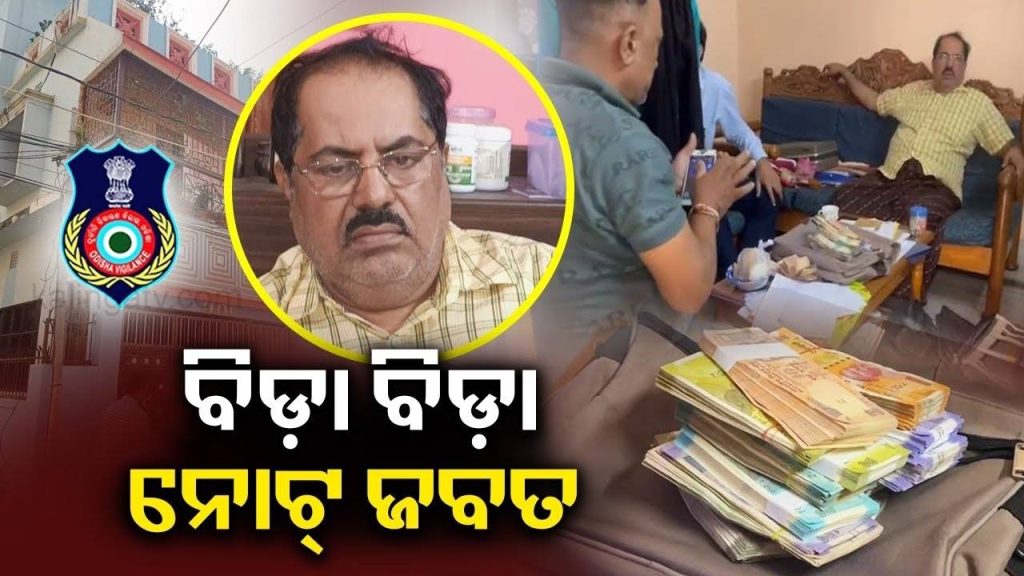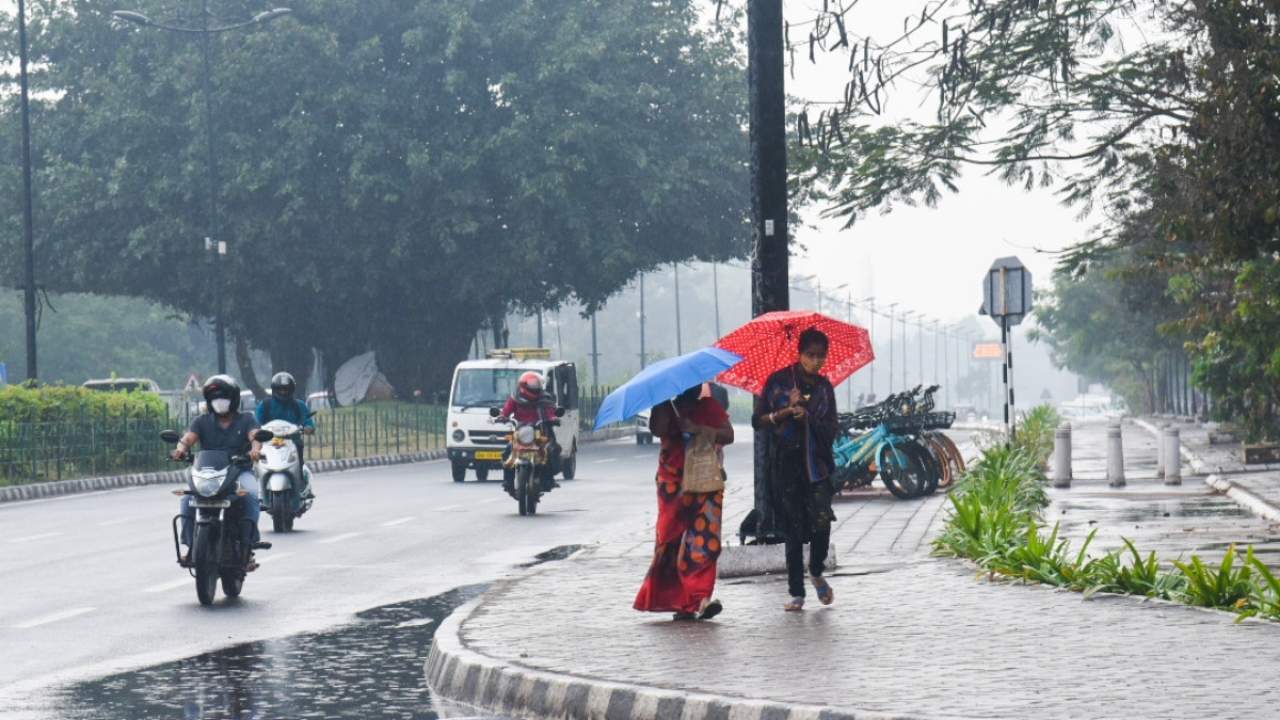In a dramatic turn of events, an engineer in Odisha made headlines for his attempt to dodge a vigilance raid by tossing a bag full of cash and gold ornaments out of his apartment window. The story has sent ripples through the state, highlighting serious issues of corruption in public offices. This article will break down the full event, the impact it has had on the community, and what lessons can be drawn from it. Whether you’re a professional concerned about ethics in the workplace or just someone looking to learn more about these types of incidents, this article has something for you.

This particular case involves Ashok Kumar Panda, an assistant engineer, whose actions have sparked conversations on government corruption and the lengths some individuals will go to conceal their illicit activities. But there’s more to this than just a sensational headline. It’s a sign of larger systemic issues and a critical reminder for all of us about transparency, accountability, and the ongoing fight against corruption.
Engineer in Odisha Tries to Dodge Vigilance by Throwing Bag Full of Cash and Gold
| Key Point | Data/Details |
|---|---|
| Incident Date | July 29, 2025 Sambad English |
| Location | Bhubaneswar, Odisha |
| Cash Found | ₹1 lakh Times of India |
| Gold Found | 60 grams of gold ornaments |
| Total Assets Discovered | ₹2 crore |
| Other Findings | Silver coin, iPhone, property documents, etc. |
For those just joining the story, here’s the scoop. On July 29, 2025, the Odisha Vigilance Department raided the home of Ashok Kumar Panda in the Cosmopolis apartment complex in Bhubaneswar. Panda had been under suspicion for possessing disproportionate assets—something that’s become a growing issue within Odisha’s engineering sector. The vigilance team was prepared for a serious investigation, but Panda had other plans. In a desperate attempt to escape detection, he threw a bag containing cash and gold ornaments out of his apartment window, hoping to evade the authorities.
Unfortunately for him, his escape was short-lived. The vigilance team recovered the bag and found not just cash and gold, but also other items like a silver coin, an iPhone, vehicle keys, and various property documents. This led to an even deeper investigation into Panda’s finances, revealing a network of assets and properties worth over ₹2 crore.
The incident in Odisha where an engineer tried to escape a vigilance raid by throwing a bag of cash and gold out of his apartment window is a stark reminder of the importance of accountability and transparency in public offices. As much as it’s a sensational story, it also serves as a cautionary tale about the consequences of trying to hide illicit wealth.
The Timeline of the Incident
The event unfolded in a highly organized and methodical way by the vigilance department. Here’s a step-by-step breakdown of the key moments:
- Initial Raid: The Odisha Vigilance Department arrived at Panda’s apartment in Bhubaneswar after receiving credible tips about his disproportionate wealth. They knocked on his door, but it was locked from the outside, and there was no response when they tried contacting Panda.
- The Escape Attempt: After hours of waiting, Panda finally opened the door and came out, but not before tossing a bag containing ₹1 lakh in cash, 60 grams of gold, and other items outside the window. He was hoping the vigilance team wouldn’t find it.
- Discovery: The vigilance team quickly located the bag and began a more thorough search of Panda’s apartment. This search uncovered several documents, including the Record of Rights (ROR), which detailed properties linked to Panda. These properties included commercial shops and multiple houses.
- Uncovering the Full Extent of Panda’s Assets: In addition to the ₹2 crore in assets found, investigators discovered Panda’s connections with other engineers in the department. The investigation revealed that Panda had jointly purchased a flat with Raja Kishore Jena, another assistant engineer, under the names of their wives.
- Ongoing Investigations: Further investigations linked Panda to multiple assets, including a Volkswagen Polo car, postal deposits totaling ₹17 lakh, and multiple properties across Bhubaneswar. This discovery only deepened the probe into corrupt practices within Odisha’s engineering sector.

Why This Incident Matters
While this particular case is noteworthy for its dramatic elements—such as the bag of cash thrown out of a window—it’s also part of a much larger issue. Corruption in public offices, especially in sectors like engineering and construction, can have far-reaching consequences on both the economy and the people of a country. Here’s why this incident matters:
- Systemic Corruption: This is not an isolated incident. Only days before, another engineer, Jagannath Pattnaik, was arrested for possessing assets 148% above his known sources of income. These repeated incidents point to a larger systemic issue within the government departments, especially in public works and engineering.
- Erosion of Trust: Public trust in government officials and public institutions is vital for a functioning democracy. When scandals like this occur, it erodes trust in the system. People start to feel like corruption is normal, which only perpetuates the problem.
- The Financial Impact: Corruption often leads to misallocation of public funds. When engineers or other public servants embezzle funds, it prevents that money from going toward projects that could benefit the community. Roads, schools, and hospitals could all be underfunded or poorly built because the money is being siphoned off for personal gain.
Practical Advice for Avoiding Corruption
As a professional, what can you learn from this situation to avoid falling into corrupt practices? Here are some clear steps:
1. Maintain Transparency
- Keep all your financial records and transactions clear and accessible. If you are in a government job or public office, full disclosure of your assets and income is key. It’s a great habit to be honest about your wealth and avoid accumulating assets you cannot account for.
2. Focus on Ethical Practices
- Always choose integrity over shortcuts. Corruption may seem like an easy way out, but it can ruin your career, life, and reputation in the long run. Stick to your ethical values, and your hard work will pay off in the end.
3. Report Suspicious Activities
- If you see corruption or unethical practices in your workplace, report it. Government departments usually have mechanisms for whistleblowing, and protecting the integrity of the system helps everyone.
4. Financial Planning and Legal Consultation
- For professionals in high-risk sectors, it’s always advisable to seek financial and legal advice before making significant investments. Experts can help you navigate asset accumulation in a lawful, ethical manner.
Vigilance Raids Reveal Crores in Cash, Gold, and Silver at Jeypore Officer’s Property
Odisha Vigilance Raids Deputy Ranger, Seizes Rs 1.4 Crore, Gold Biscuits, and Coins
Odisha to Convene High-Level Meeting on Apartment Registration Under RERA
FAQs
1. What does “disproportionate assets” mean?
- Disproportionate assets refer to wealth or properties that are significantly higher than a person’s declared income or official salary. If an individual’s lifestyle doesn’t match their income, it raises suspicion of illegal wealth accumulation.
2. What are the legal consequences of corruption in government?
- Individuals found guilty of corruption can face severe legal consequences, including imprisonment, fines, and the seizure of their assets. Legal proceedings can also damage their professional reputation and career.
3. How does corruption affect society?
- Corruption can slow down economic progress, lead to inefficient use of public resources, and result in poor quality of public services. It also creates inequality, as the benefits are often only available to a select few.





